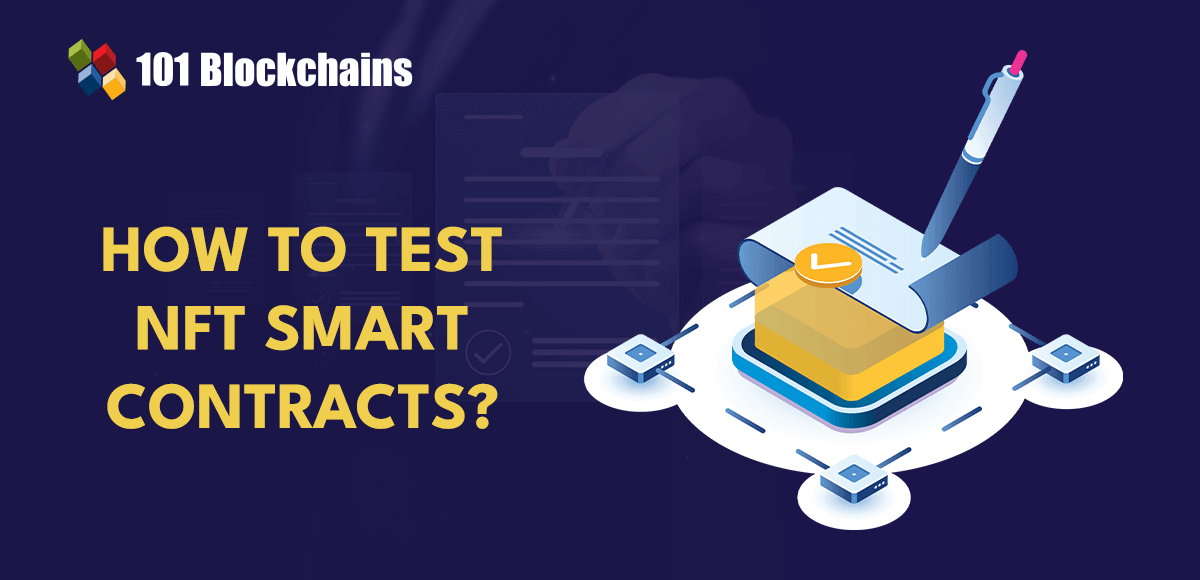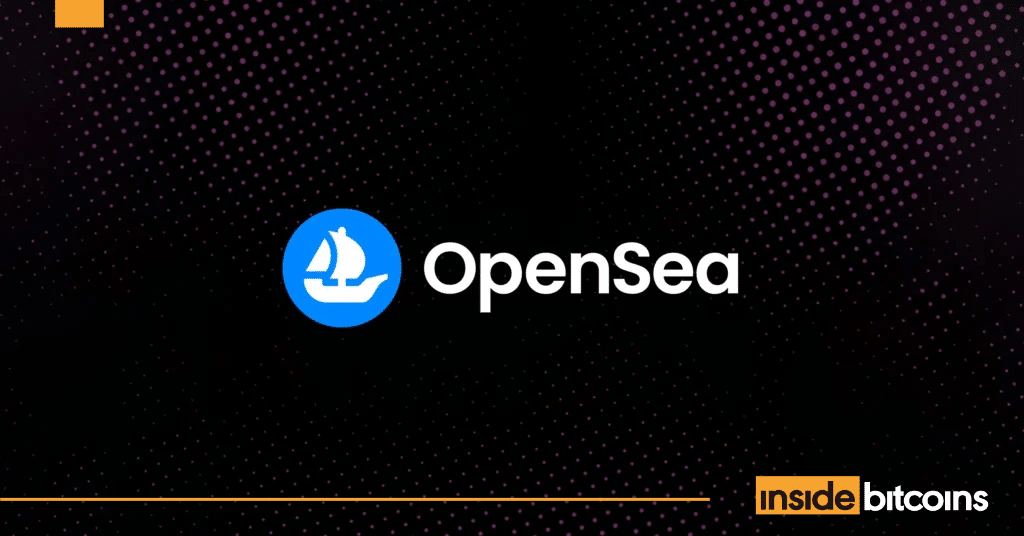Learn how to test your NFT smart contract

The blockchain ecosystem has become one of the notable discussion points due to its impressive potential to drive digital innovation. One of the most important factors affecting the functioning of the blockchain ecosystem is smart contracts. Smart contracts are an essential component of dApps, DeFi protocols, and NFTs, along with various types of blockchain-based apps. Smart contract testing tools have therefore become a top priority for NFT developers. Why do NFT developers need smart contract testing? Smart contracts are a useful resource that can be used to create NFTs, which are extremely valuable assets. When something as valuable as an NFT is at risk, it’s important to think about security and functionality. Smart contract testing for NFTs helps ensure that the NFT is secure and performs as desired. Let’s explore best practices for testing NFT smart contracts.

Understanding NFT smart contracts
NFTs, or non-fungible tokens, have marked a major milestone in technology history with multi-million dollar auctions. The main advantage of NFTs is that they are indivisible and completely unique. Before finding out how to test NFT smart contracts, it is important to learn about their significance. NFTs serve as representations of digital assets such as images, in-game collectibles, video or audio files. What is the role of smart contracts in these unique assets? Smart contracts help you represent your NFT on the blockchain platform of your choice.
An NFT smart contract is a piece of code that helps define the logic and rules for creating, transferring, and managing tokens on a blockchain. Smart contracts also serve to prove ownership of the NFT and play an important role in establishing the uniqueness of the NFT. The programming language of choice for NFT smart contracts is Solidity, a popular programming language tailored for Ethereum and other supported blockchains.
We are excited to develop a deeper understanding of Solidity best practices and the tools needed to develop and test NFT markets. Enroll in our NFT development course today.
Why test NFT smart contracts?
Testing an NFT smart contract may seem like a complicated process. However, because NFT smart contracts are extremely valuable for a number of reasons, it is important to find an NFT smart contract validator. For example, blockchain immutability increases the cost of deploying smart contracts on a blockchain network. Deploying a smart contract with bugs or vulnerabilities can result in data and token loss, meaning a new contract must be deployed.
The most important reason to test an NFT smart contract is to see how the code works. This helps ensure that the NFT smart contract’s code performs as expected and meets the project’s desired specifications and requirements. Another important reason for testing NFT smart contracts is to identify and resolve bugs, vulnerabilities, and errors. This can help ensure protection for the security and functionality of NFTs.
The final reason for choosing testing has to do with improving the quality and performance of NFT smart contract code. Smart contract testing before deploying an NFT can help optimize code to improve scalability and gas efficiency. You also need to know how to test NFT smart contracts as an effective resource for effective management of future contracts and potential migrations. Testing also provides important documentation that helps understand the operating mechanisms of the contract. Documentation can help new developers join future projects with limited difficulty.
I would like to learn about the various applications of NFTs. Check out our presentation on NFT applications
What are the different types of testing for NFT smart contracts?
Static or dynamic analysis and functional testing are the most common approaches to utilizing automated tools for testing Ethereum smart contracts. Below is an overview of the different tests that can be implemented for NFT smart contracts.
The most common approach for automated testing of smart contracts is functional testing. One of the first answers to questions like “How do I test an NFT smart contract?” Functional testing helps ensure that your smart contract works as expected.
Functional testing also helps us understand how smart contracts perform in specific situations. Calculations using specific values allow you to test any function and compare the results with expectations. Functional testing also benefits other types of testing that have greater coverage.
Unit testing involves testing individual parts of a smart contract independently. The best thing about unit testing is the simplicity of the method and the clear impression of errors in the smart contract. Unit testing is very important in smart contract development, especially when adding new logic to the smart contract code.
Additionally, unit tests can help you determine the working mechanism and desired behavior of each feature. Developers can run unit tests through assertions, which are short descriptions of what a smart contract is expected to do.
Integration testing is one of the notable ways to test NFT smart contracts in the realm of functional testing. In this approach, smart contracts are tested as a combination of individual units. Integration testing is a useful recommendation for identifying errors that appear in different parts of a contract or during the interaction between two different contracts. Integration testing is a useful tool for testing NFT smart contracts of complex design.
Curiosity to know how to test NFT smart contracts also leads to system testing. System testing is also an effective approach to testing the overall functionality of a smart contract. In fact, it is one of the essential components of a functional testing approach to smart contracts. The main goal of system testing is to verify the operation of smart contracts from the user’s perspective.
Want to understand the entire smart contract development life cycle? Enroll in our smart contract development course today
What tools can I use to test my NFT smart contract?
The next important highlight of the NFT smart contract testing guide draws attention to the tool. One of the most popular smart contract testing tools for NFT smart contracts is Truffle. It helps you create automated tests in Solidity or JavaScript by leveraging the Chai assertion library and the Mocha testing framework. Truffle also provides a command line interface to help you compile, deploy, and interact with smart contracts.
Another important NFT smart contract validation tool is the Ganache local blockchain. It acts as a private Ethereum blockchain on your computer, providing an accurate simulation of the network state and behavior of the main or test network. Ganache helps you deploy and test NFT smart contracts without using actual gas or Ether. Ganache also provides access to a variety of features and settings, including accounts, transactions, balances, logs, blocks, and events.
I want to learn about non-fungible tokens and how to build and deploy them on the Ethereum blockchain. Enroll in our NFT Basics course now.
What should you test in your NFT smart contract?
The approach to testing NFT smart contracts depends on a variety of factors. Anyone who wants to know how to test NFT smart contracts must understand how the complexities and capabilities of smart contracts affect testing. You should also know about the important aspects of NFT smart contracts that need to be checked during the testing process.
Developers should test constructors, initialization, publish and burn functions, send and accept functions, metadata, and enumeration functions. The testing process should also focus on the security features and access control features of the NFT smart contract.
NFT smart contract testing emphasizes verifying the name, symbol, total supply of tokens, base URI, token ID assignment, and NFT creation and destruction. Additionally, developers must check modifiers, roles, and permissions for specific functions in NFT smart contracts and revert messages to prevent invalid or unauthorized actions.
Learn more about the basics of Non-Fungible Tokens (NFTs) and what non-fungible tokens really mean with the NFT Skill Path.
Important things to consider for testing NFT smart contracts
Testing NFT smart contracts requires attention to certain aspects. First of all, you must have a reliable test case design that covers all possible scenarios. For example, you need to ensure that your contract tests both scenarios in which conditions are met and scenarios in which they are not met.
Developers should consider using mock contracts during NFT contract testing to replicate the behavior of other contracts. This helps determine which features of the NFT smart contract need to interact with other contracts. NFT smart contract security auditing is another important aspect of the testing process.
We need to look at the existing state of NFT security, as security threats to non-fungible tokens are increasing the burden of financial losses. It is important to regularly scan your contracts for potential security vulnerabilities, utilizing tools such as Mythril or Slither.
final words
The need for NFT smart contract testing has become an important highlight in the emerging web3 environment. NFTs have the potential to transform ownership of digital assets, including but not limited to works of art and in-game collectibles. However, to verify the functionality of your smart contract, it is important to use the best smart contract testing tools and methods recommended by experts.
Developers can use tests to verify the functionality and security of their NFT smart contracts. Testing can also help you create documentation that can be helpful to new developers. Learn more about NFT basics and how to ensure their security against emerging security threats.

*Disclaimer: This article should not be considered, and is not intended to provide, investment advice. The statements made in this article are not investment advice and should not be taken as such. 101 Blockchain is not responsible for any loss suffered by anyone relying on this document. Do your own research!



